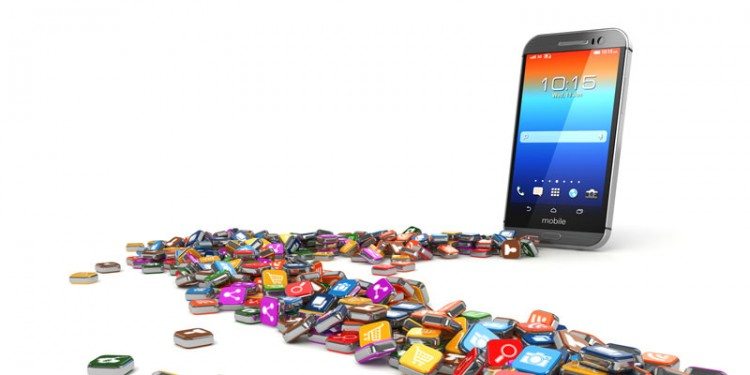
Everyone knows what Digital means – right? And yet everyone’s point of view is definitive (and different). In my opinion, the term Digital has been hijacked and is used incorrectly as a modern day moniker for technology, and applied indiscriminately to anything from social marketing to omnichannel servicing to eCommerce. This conscious misuse of the term reminds me of the technology bubble, 15 years ago, when everything with a website was enthusiastically labelled as a dot.com. It is important to set the record straight on what is and what is not Digital.
I had my eureka moment while reading a paper from the European Commission on the topic of taxation in the Digital Economy. While a fairly dry topic, the paper was the first I had seen which gave a thoughtful and lucid definition of Digital. In contrast to many of the biased perspectives I have garnered from consultants’ thought leadership, this paper from the European Commission was clear in its rationale and conclusion, leading to an elegant definition. We have taken this definition as a starting point and adapted it in light of our role as a mobile network operator (“MNO”).
So what do we mean by Digital? At its heart, Digital is about data in the following ways: digital is about the creation of data from hardware and software; digital is about the intelligent transportation of data; and digital is about the use of data to power smart industries.
First, as an MNO, we see handsets, tablets, apps and messaging / collaboration software as the platform to create data – wearables and other connected devices are starting to become more important. Second, our network makes us unique, in the same way that payment infrastructure makes Visa and MasterCard unique; we are able to intelligently transport customer generated content, or a query, to the relevant party, quickly and securely. Third, industries are waking to the notion of being powered by customer data and becoming smart. Yet powering companies with customer data is the single most delicate aspect of Digital because of a mixture of customers’ self-expressed sensitivity and the need for modern and relevant legislation to protect society. Hence, we are only at the dawn of the Digital Enlightenment.
There has never been any doubt that customer data can be monetised by the company that holds the data itself – this is how Facebook and Google generate substantial incomes. However, customers should be given the choice to share their data, and be given something of value, in exchange. Customers should not be penalised for wishing to keen their data private. Customers should not be duped into sharing their data – they need to be provided with the facts and given appropriate guidance to make an informed choice. Today, when companies talk about seeking customers’ permissions to “use their data”, this refers to a tick box exercise which allows the company to benefit, without any deeply considered exchange of value or benefit returned.
Conscious permissions will be needed in the future to power smart industries. These permissions will be given by customers under the principle of a value exchange – where a company pledges something of appropriate value to a customer in exchange for access to and use of their data. Taking smart thermostats as an example, a customer may give access to their energy consumption data in exchange for regular advice on the lowest available tariffs and the option to switch – this service could ultimately help reduce the customer’s cost of living. The case for fitness trackers is already well established – by sharing your movement, sleep and dietary data, Up (by Jawbone) benchmarks you against your peer group and constantly nudges you to walk more, sleep more and eat better. Jawbone could go one step further and recommend specific supplements which are required in order to compensate for imbalances in a customer’s diet and, in addition, offer discount vouchers for those supplements at health food retailers. Taking value exchange even further still, the hub-of-all-things (“HAT”) project promises to develop a market for personal data. This will allow customers to collect and trade their personal data with companies for services, products or, possibly, cash. It is evident that to power smart industries, companies will succeed where there is an explicit benefit offered to customers in exchange for the use of their data.
So what is Digital? What is not Digital? Digital is not a marketing executive who writes blog posts and manages the company Twitter account. Rather, it is the social media platform which facilitates the creation and sharing of data. Digital is not an operational strategy to streamline the customer experience across all channels. Rather, it is the intelligent collection of customer data in respect of their journeys, patterns and preferences. Digital is not eCommerce in its pure, transactional sense. Rather, it is the self-elected sharing of personal data to gain value in the form of beneficial offers for products and services.
Does the term Digital mean something specific? Clearly it does. We must resist the temptation to use the term as a fashion accessory and reserve it for the very specific and significant changes that are happening in our society and, consequently, to our economy. I propose that Digital be defined as, “a business model revolving around the permitted use of personal data to provide transparent and consenting value exchanges between parties”. Where this condition is met, let there be Digital.





David Reilly
Managing Director
lets learn Digital
Ben, an interesting topic and not easy one to tackle and define precisely. I agree with your points about Data and transparency. To me digital's uniqueness is about speed, measurement (thus transparency) and its unique ability disruption. The last point I think has yet to be fully grasped by the FS industry. David
0 ReplyReportBack to top